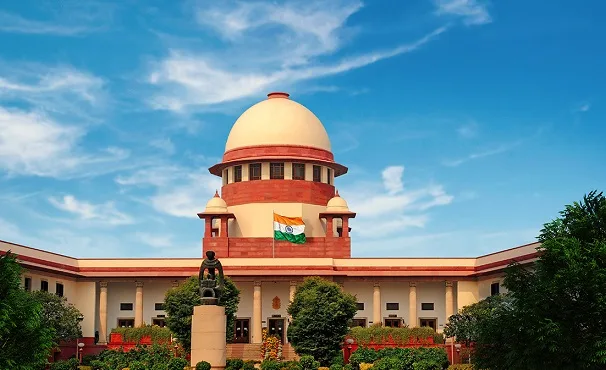Supreme Court has ruled that calling someone “Miyan-Tiyan” or ‘Pakistani’ is inappropriate but not a criminal offence under Section 298, as it doesn’t meet the legal threshold for hurting religious sentiments.
AMN / NEW DELHI
While discharging a man accused of hurting the religious sentiments of a government official by allegedly referring to him as “miyan-tiyan” and “Pakistani”, the Supreme Court has said that while the remarks are in “poor taste”, they “do not amount” to the offence alleged.
“The appellant is accused of hurting the religious feelings of the informant by calling him ‘miyan-tiyan’ and ‘Pakistani.’ Undoubtedly, the statements made are poor taste. However, it does not amount to hurting the religious sentiments of the informant. Hence, we are of the opinion that the appellant shall be discharged under Section 298 IPC,” a Bench of Justices B V Nagarathna and S C Sharma said in its February 11, 2024, order.
A bench comprising Justices BV Nagarathna and Satish Chandra Sharma delivered the verdict while closing a case against an accused, Hari Nandan Singh, who was alleged to have called a government servant ‘Pakistani’ while the latter was performing his official duties.
“Undoubtedly, the statements made are in poor taste. However, it does not amount to hurting the religious sentiments of the informant. Hence, we are of the opinion that the appellant shall also be discharged under Section 298 IPC,” the Court ruled in its judgment dated February 11.
The complainant, an Urdu translator and acting clerk under the Right to Information (RTI) Act, had personally delivered certain information to the accused, Singh, following an appellate authority’s order.
Singh, initially reluctant to accept the documents, eventually did so but allegedly hurled abuses at the complainant, referencing his religion.
It was further alleged that Singh used criminal force against the complainant with the intention of intimidating and deterring him from performing his duties as a public servant.
This led to the registration of an FIR against Singh under multiple IPC provisions, including Sections 298 (hurting religious sentiments), 504 (intentional insult to provoke breach of peace), 506 (criminal intimidation), 353 (assault or criminal force to deter a public servant from duty), and 323 (voluntarily causing hurt).
The Magistrate, upon reviewing the case, framed charges under Sections 353, 298, and 504, while dismissing charges under Sections 323 and 506 due to a lack of evidence.
Singh’s plea for discharge was initially rejected by the Sessions Court and later by the Rajasthan High Court, prompting him to approach the Supreme Court.
The apex court ruled that there was no evidence of assault or use of force to sustain the charge under Section 353 IPC and noted that the High Court erred in not discharging the accused under this provision.
The top court further held that Section 504 IPC was inapplicable as there was no act on Singh’s part that could have provoked a breach of peace.
As for Section 298, the Supreme Court acknowledged that while Singh’s remarks were inappropriate, they did not legally amount to wounding religious feelings under the IPC. Consequently, Singh was discharged of all charges.

